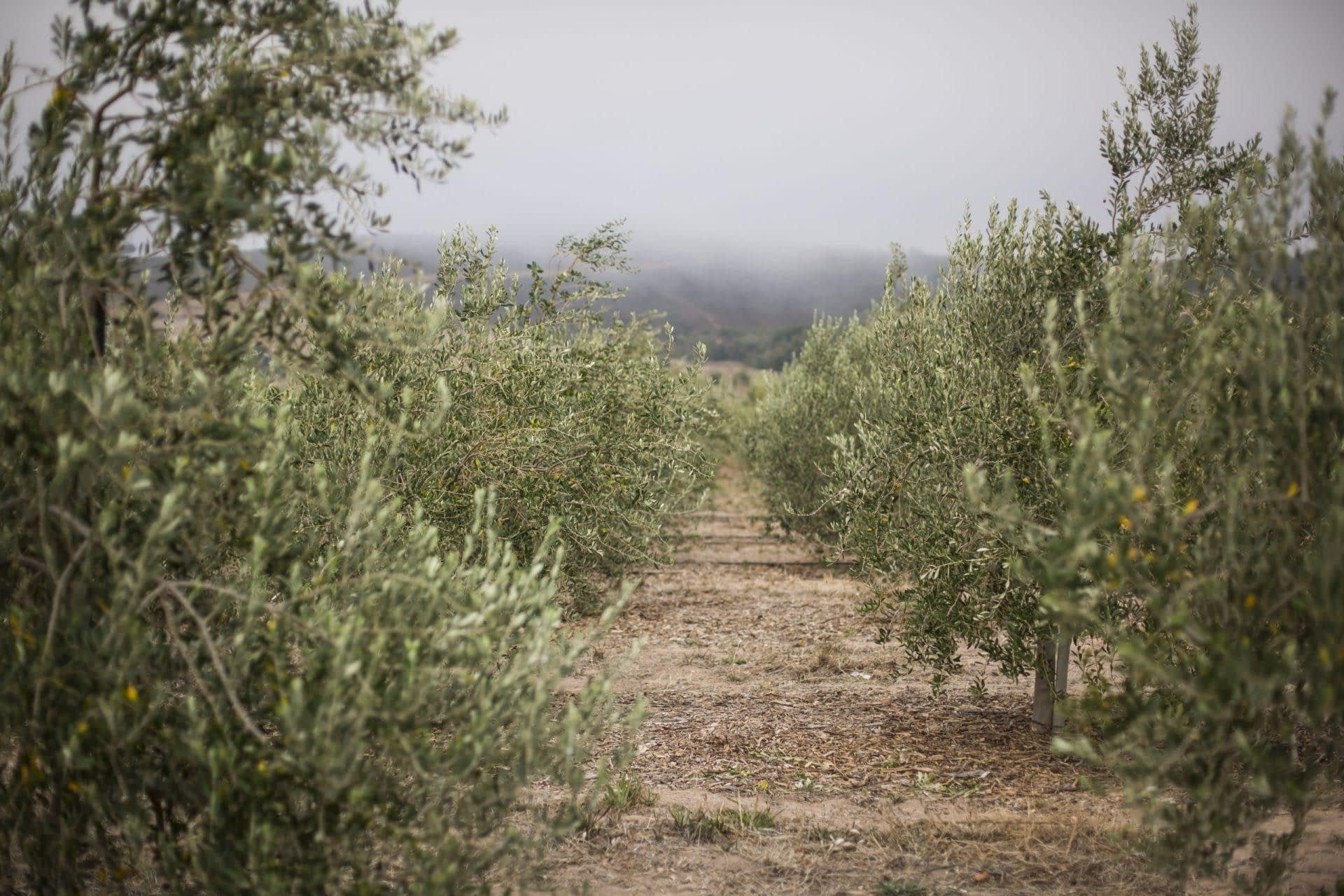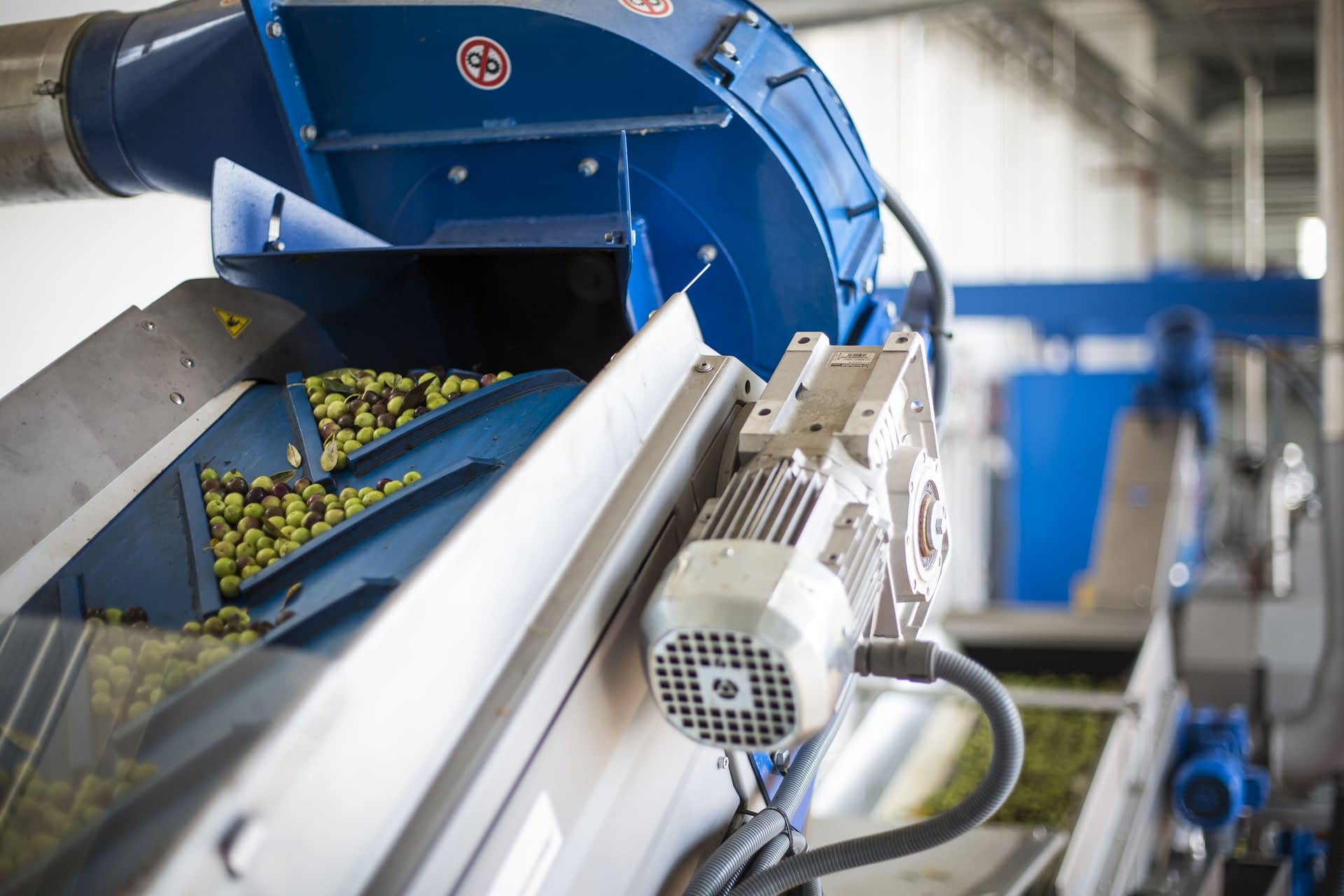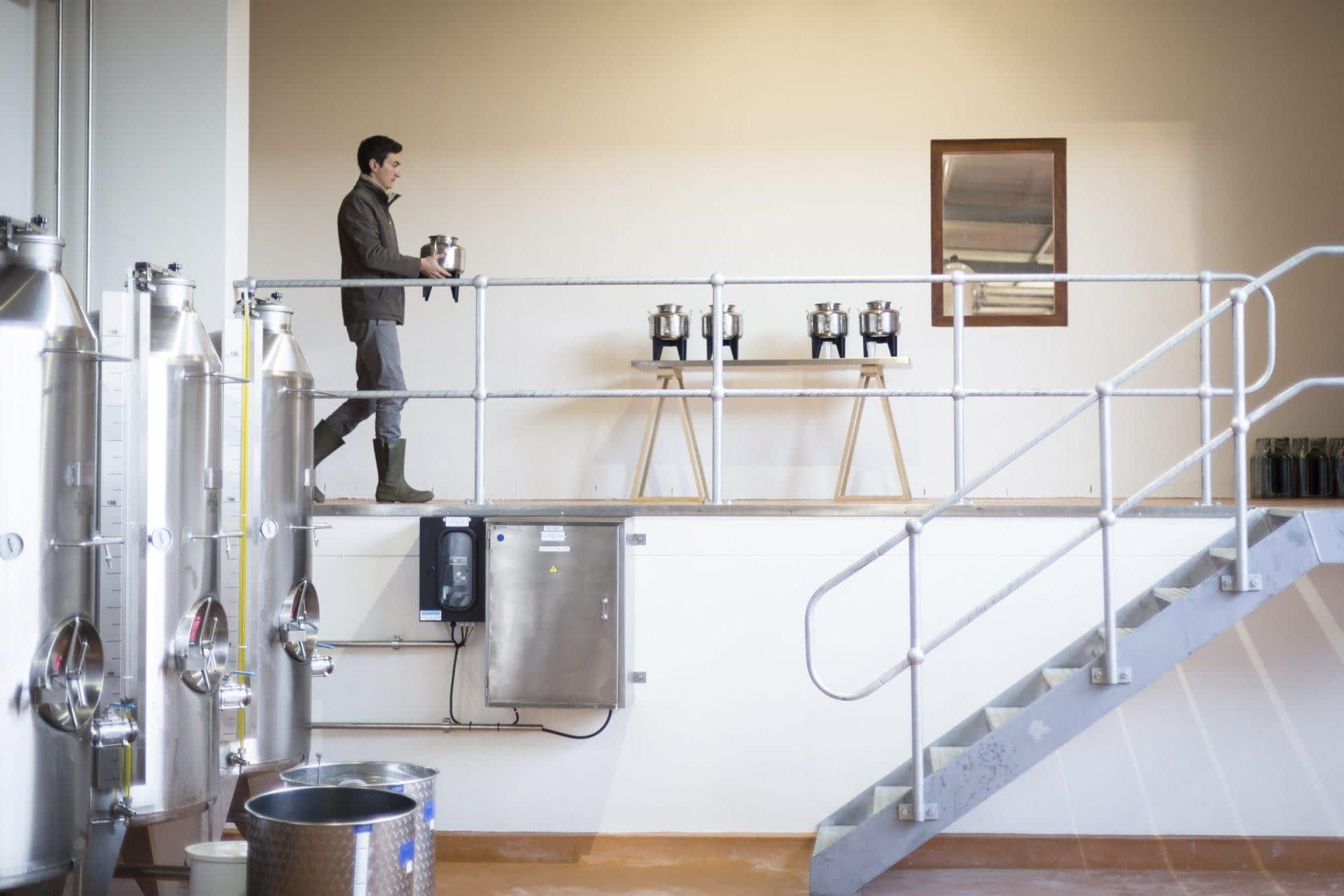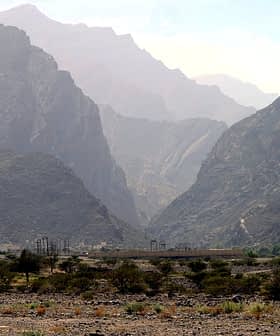Award-Winning Producer Highlights Growth in South African Industry
On a 330-year-old farm, the NYIOOC award-winning Babylonstoren has become one of South Africa’s largest olive oil producers.
 (Photo: Babylonstoren)
(Photo: Babylonstoren) Olive cultivation and olive oil production are rapidly increasing in South Africa. According to SA Olive, olive grove surface area doubled between 2010 and 2020.
Based on the rate at which new groves are being planted, the producer association estimates that olive cultivation is increasing by 20 percent each year, making it the fastest-growing agricultural subsector in the country.
The rise of olive oil production at Babylonstoren, a historic farm located at the foot of Simonsberg in South Africa’s Franschhoek wine valley, mirrors the rise of the national sector.
The farm was founded in 1692, just 30 years after the first two olive trees were imported to the country. While some commercial olive growing took root in South Africa in the early 1900s, the olive oil boom did not get underway until the early 2000s.
See Also:The Best Olive Oils from South AfricaBabylonstoren was not far behind. The current owner purchased the farm in 2007, planted the first olive trees in 2011, and started producing olive oil in 2014. “We’ve been on a continuous growth journey from that point,” Petrus van Eeden, Babylonstoren’s olive and tea specialist, told Olive Oil Times.
The owner did not plan on becoming an agricultural producer. The farm was initially meant for personal use. However, the owner invested in landscape architecture in 2009 and renovated several cottages to rent to holidaymakers in 2010.
“The genesis of everything at Babylonstoren can be traced back to the heart of the farm, the 12-acre (5‑hectare) formal fruit and vegetable garden. This included our expansion beyond the garden into agriculture,” says Van Eeden.
“Olive oil production was gaining popularity in South Africa,” he added. “We decided to plant olive trees in 2011, and then from there, it grew to a significant part of our agricultural business.”
The company is a significant producer of wine, by far its largest agricultural endeavor, along with growing olives, citrus, dragon fruit and other crops.
Babylonstoren cultivates 62 hectares of olive groves – about 56,000 trees – making it one of South Africa’s largest olive oil producers. According to SA Olive, about half of the country’s olive growers cultivate less than five hectares.

Babylonstoren grows 14 olive varieties for table olive and oil production on 62 hecatres. (Photo: Babylonstoren)
Van Eeden said the company grows about 14 varieties for table olives and oil production. The predominant varieties are Coratina, Don Carlo, Frantoio, Mission, Kalamata, Koroneiki, Leccino and Arbosana.
“We have our own olive oil plant and use cold extraction to make our extra virgin olive oil,” he said.
While South Africa’s olive oil industry has expanded rapidly, making it the fifth-largest producer in the Southern Hemisphere, farmers and millers acknowledge that they will never compete with Mediterranean countries for volume and focus on quality.
To that end, Babylonstoren earned three Gold Awards at the 2023 NYIOOC World Olive Oil Competition for a pair of monovarietals – Frantoio and Coratina – and its blend of five Italian varieties.
Christi Azurmendi Moon, Babylonstoren’s director of U.S. sales, told Olive Oil Times that awards from New York help the company establish a name for its extra virgin olive oil in new markets.
“We’re still evolving in the United States, and these awards were a good opportunity to show that our olive oil is as good as or better than our competitors,” she said. “They make it easier to sell to distributors and end consumers.”

Modern milling equipment was one of the compay’s keys to success at the 2023 NYIOOC. (Photo: Babylonstoren)
The company started exporting wine to the U.S. in 2014. Azurmendi said the appetite for South African products has grown in recent years and is now working to expand its footprint in the world of olive oil.
“Wine has helped be a vehicle for olive oil in the country,” Azurmendi said. “As people are becoming more aware of South Africa as a place that makes high-quality olive oil and wine, I think we’re going to see that interest trending up.”
The main challenge for the company in the U.S. is to find the best channels to market the olive oil to sell in supermarkets and food services. Azurmendi said the awards help the product stand out, playing an essential role with distributors.
In South Africa, van Eeden faces an entirely different set of challenges. The omnipresent issue that producers deal with in the country is the rolling blackouts, known euphemistically as load shedding.
“It has been a tough year in terms of load shedding,” van Eeden said. “We use generators, and the fuel costs can really add up.”
He added that the farm’s primary business lies in hospitality, which allowed them to diversify their business portfolio, resulting in various income streams.
“We are fortunate in the sense that a large part of our business is tourism-based. Our vineyards and wine production are also integral to Babylonstoren, as is our retail business, providing us with a diversified revenue stream,” he said. “While farming is a core component, our scope is broad, and we aren’t solely dependent on agriculture.”
Oleotourism is among the Babylonstoren’s touristic activities. The farm offers an olive oil and balsamic vinegar tour that includes visits to the grove and mill, finishing with a tasting and the opportunity for guests to produce their unique olive oil blend.

One of Babylonstoren’s oleotourism offerings is to craft custom blends for visitors. (Photo: Babylonstoren)
“You can see people light up when they start tasting olive oil and discover what high-quality olive oil is,” van Eeden said.
He added that the end goal of the tastings is for people to make the connection between olive oil and their food.
“With olive oil, you need to find ways to incorporate it into foods and dishes,” van Eeden said. “You need to create an experience.”
“There’s a lot of scope for oleotourism in South Africa, though it comes with unique challenges,” he added.
Geography is the main challenge, with plenty of tourist infrastructure built around wineries, while many olive groves are not in these areas.
Van Eeden said the 2023 harvest was below average for the farm, primarily due to many of the trees entering an ‘off-year’ in the natural alternate bearing cycle of the olive tree. He estimated that they harvested about 230 tons of olives.
However, the farm is actively planting new trees, and he anticipates a significant increase in production soon. His optimism was buoyed by the wet winter and signs pointing to a promising harvest in 2024.
“We’re banking on a good year. We already see some promising fruit set on the trees,” he said. “We expect to take our production up considerably, possibly to 800 tons in the next three years.”








